If there’s one gift wrapping question I get asked more than any other, it is “How do I tie a bow?” It’s a question that requires as special answer because as much as I love bows, they can be tricky to get just right. Bows are a bit like cats – they have a mind of their own and they will do absolutely what they want not necessarily what you want.
I am fascinated by bows. Always have been. They’ve been around in fashion and jewellery for years, and certainly since Victorian times. A great article in Vogue extols the virtue of the bow and showcases 15 of the most fabulous fashion bows ever.
The history of bows in gift wrapping is a little harder to trace. It is most certainly linked to the development of gift wrapping paper. The piece in The Atlantic by Megan Garber is my top article in this domain. But the article from Lily Feinn in The Bustle is worth a look a look too. Can’t know too much about the history of gift wrapping I say.
There’s very little about where and why bows started appearing on the gift wrapping scene. That’s not the end of the world, I guess but it would be kind of quirky fun to know. What I can say is as fabrics and ribbon have developed so have bows and our use of them to secure and embellish.
The thing about bows – besides their lineage – is that achieving the perfect look is a combination of selection and skill (or how you actually tie it). My focus here is on selection – choices about the type of the ribbon, the style of the bow and the proportion of the bow to the item being wrapped.
Here’s the thing – not all ribbons can be used for every type of bow. Incorrect ribbon and bow pairing ( a bit like food and wine pairing only significantly more important in my world) can result in a lot of ribbon being wasted and an end result that is a bit sad.
So here’s my summary of the best bows to use with the five most popular ribbon types.
Satin Ribbon – beautiful, rich, shiny, floppy in double sided and single sided versions. Best for bows that sit flat and “melt”. Not suitable for bows requiring height as the weight of the ribbon will cause it to droop.
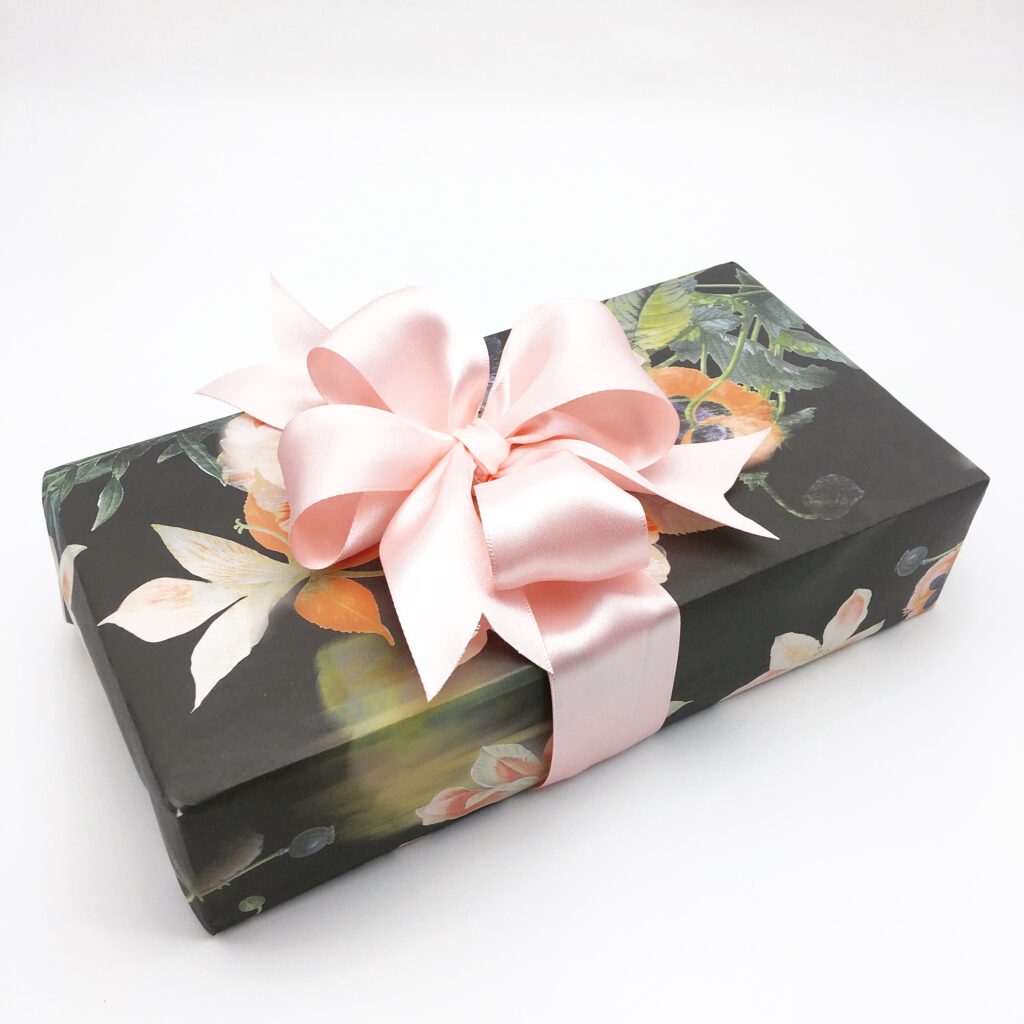
Wire Edged Ribbon – has a small thin wire along the edge. Comes in a range of fabrics from sheer to taffeta to quite coarse hessians and burlap. Best for big occasion bows when you want height and structure. Not suitable for subtle looks or where you need the bow to lie flat say for postage.
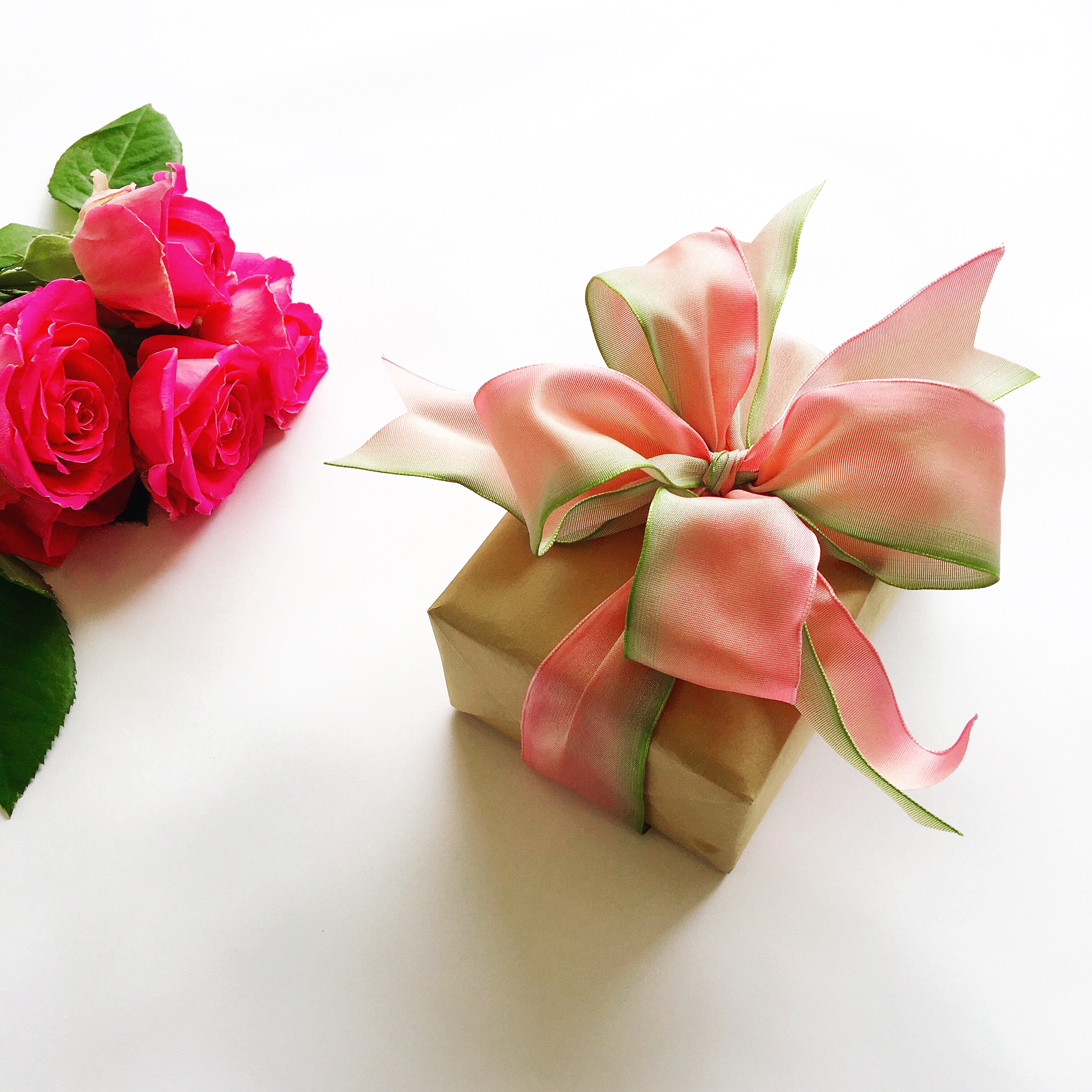
Grosgrain Ribbon – a coarse ribbon with a definite warp and weft originally used as edging. Best for single bows, ring bows or classic knots. The striped versions are jaunty. Too cumbersome for multi loop bows that are gathered in the centre. Create a bulky knot when tied.
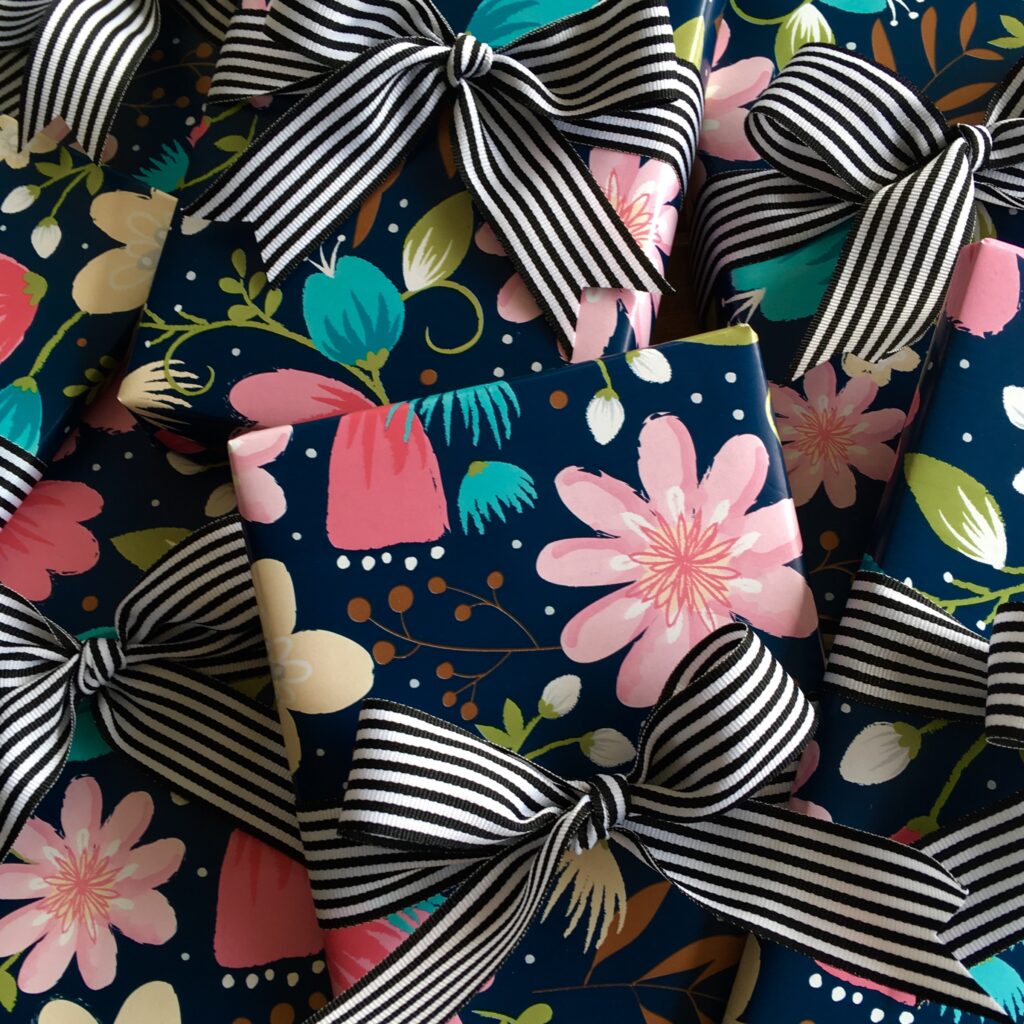
Velvet Ribbon – beautiful, rich texture that can be single or double sided. Best for single loop bows. Due to its thickness it does not work well with multiple knots or layers.
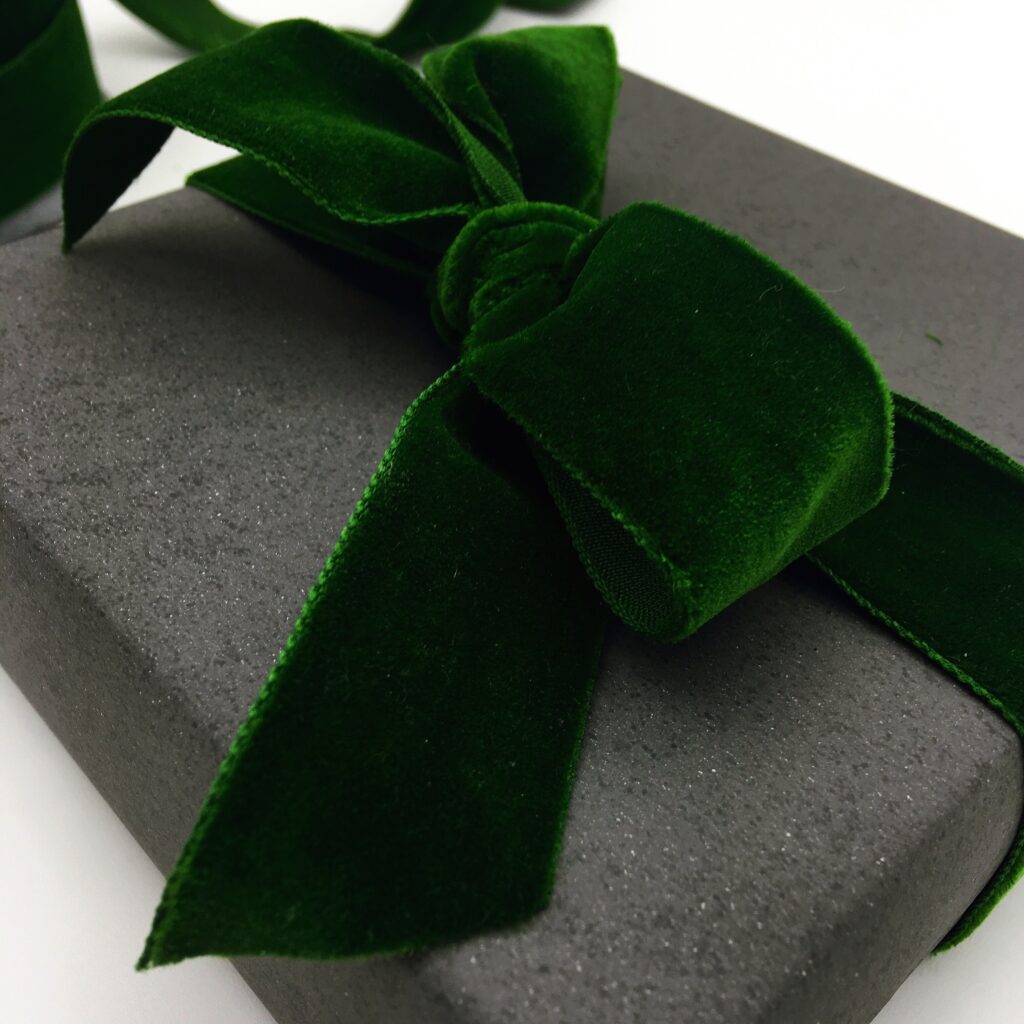
Organdy – transparent and floaty with a cut or uncut edge. Best with multiple layers. Can actually look a bit mingy with only one layer around a gift or in a bow – it’s so light weight it gets lost against the pattern of the wrapping paper.
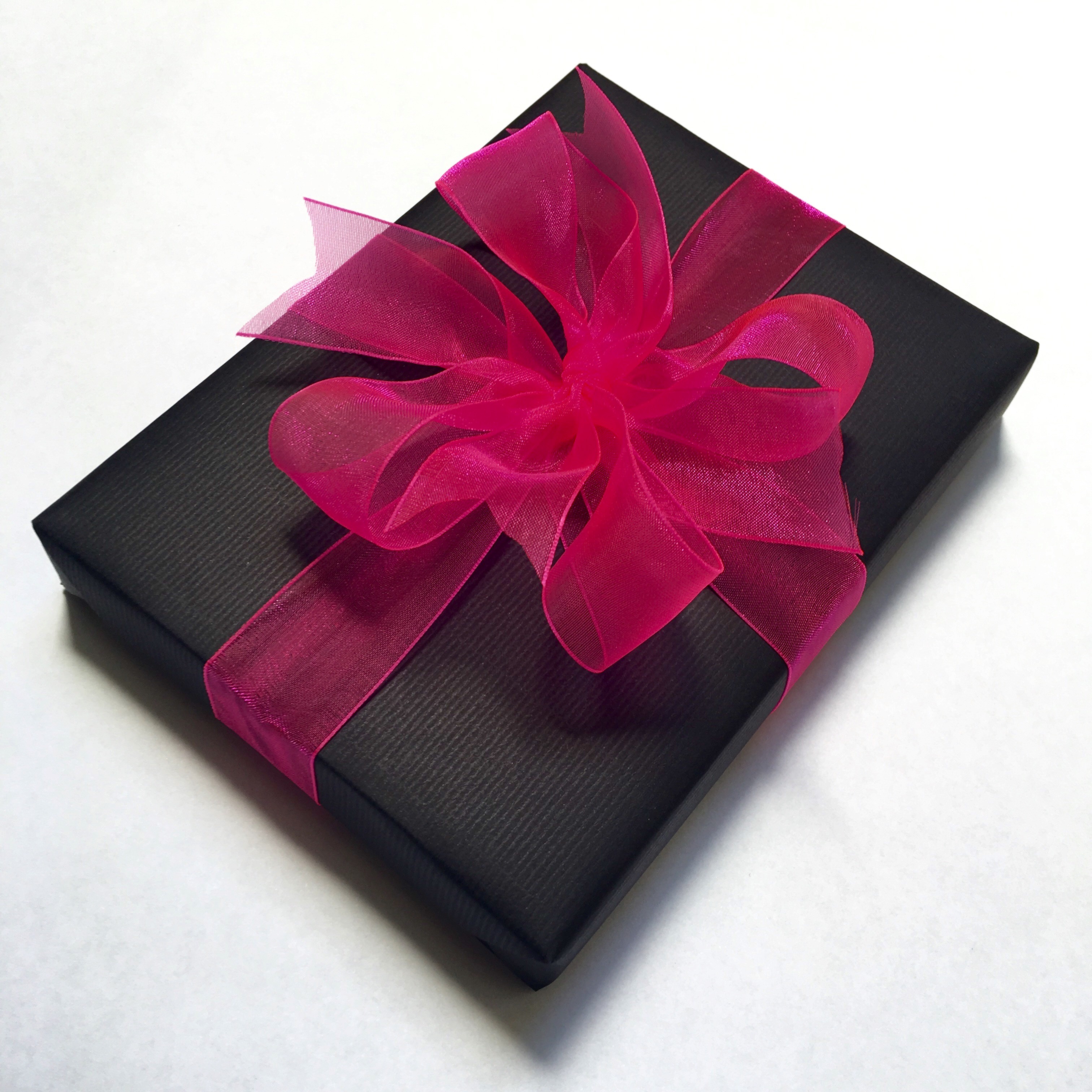
The main factor (if I had to pick one) is the weight of the ribbon. The heavier the ribbon fabric, the less suitable it is for a stand up loopy bow with multiple layers.
I am also going to add proportion of the the width of the bow to the size of the gift. Because I am so keen on ribbon, I tend to want to use as much ribbon as I can all of the time. If a ribbon is too wide it can suffocate the look of the gift and the impact is lost. I am not too proud to share that when I first started gift wrapping seriously I used ribbons that were just too wide and the while the look wasn’t totally terrible – with hindsight it was way out of balance.
Balance, balance, balance – that’s what it is all about – especially when you are choosing the perfect ribbon for the perfect bow.